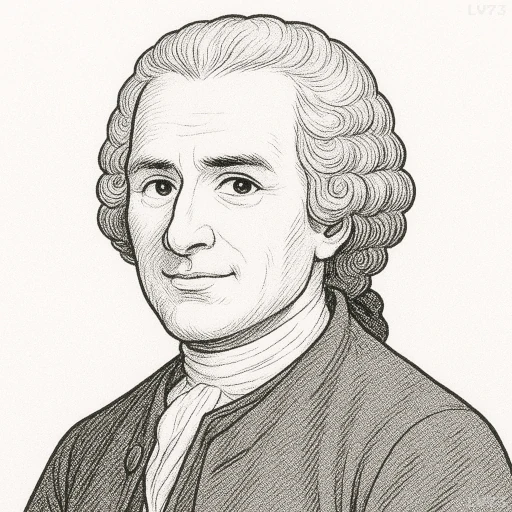“I may be no better, but at least I am different.”

- June 28, 1712 – July 2, 1778
- Born in Geneva
- Philosopher, political philosopher, writer, composer
table of contents
Quote
“I may be no better, but at least I am different.”
Explanation
In this quote, Jean-Jacques Rousseau embraces his individuality and asserts that while he may not claim to be morally superior or inherently better than others, he takes pride in being different—distinct from the conventional norms or expectations of society. Rousseau’s words reflect his commitment to personal authenticity and nonconformity. Rather than seeking to blend in or adhere to societal norms, he values the act of differentiating oneself, even if that difference does not necessarily make him “better.” For Rousseau, the act of being true to one’s unique nature or beliefs, regardless of whether it leads to superiority, is a form of integrity that is worth pursuing.
Historically, Rousseau’s desire to be “different” fits with his broader philosophical stance on society and individualism. He often criticized social institutions, particularly those of his time, for corrupting the natural goodness of individuals. In works like The Social Contract and Emile, Rousseau contended that society imposes artificial constraints on individuals, shaping them into conforming, self-interested citizens. His personal life was a reflection of this stance, as he often felt alienated from mainstream society and rejected traditional norms. Rousseau’s embrace of difference over conformity was a direct response to a society he viewed as corrupt and stifling of true human nature.
In modern times, this quote resonates with ongoing discussions about individualism, authenticity, and the pressures of social conformity. In an era where social media and popular culture often promote uniformity and the desire to fit in, Rousseau’s assertion encourages us to value our uniqueness and embrace differences, even if they do not elevate us above others. It speaks to the importance of self-expression and personal integrity in a world that frequently rewards conformity over individual distinction. Rousseau’s words remind us that sometimes, the mere act of being different—in thought, appearance, or action—is itself a meaningful choice, one that affirms our personal freedom and authenticity.
Would you like to share your impressions or related stories about this quote in the comments section?
